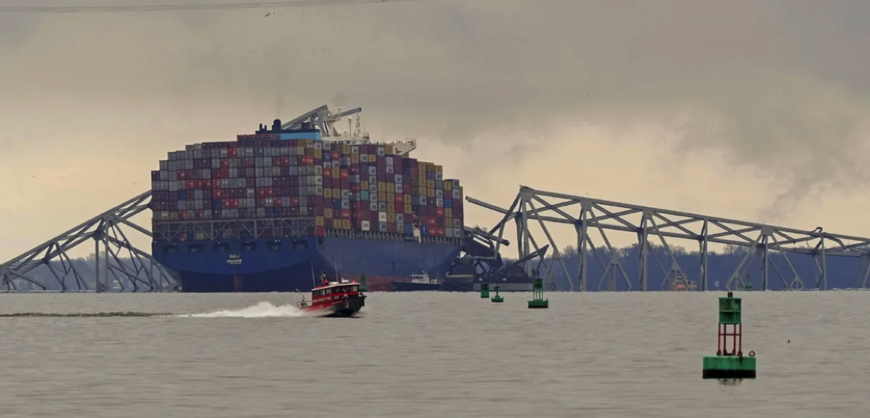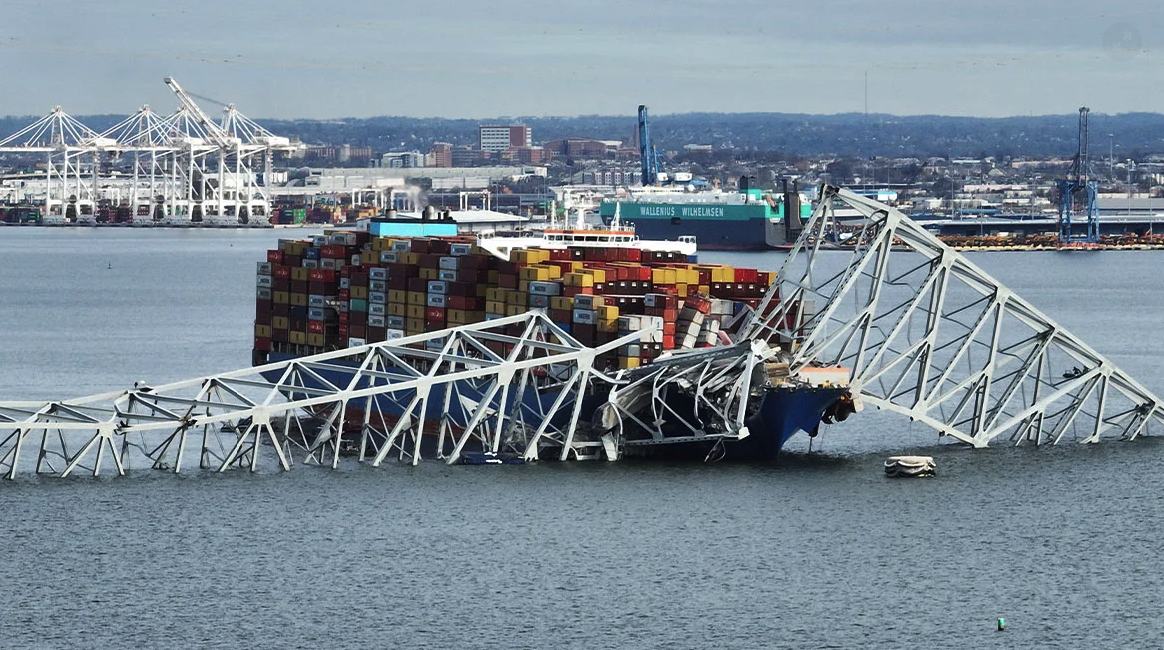The collapse of the Francis Scott Key bridge in Baltimore after the cargo ship DALI collided with it last Tuesday could lead to the largest maritime insurance payout of all time, the chairman of insurance giant Lloyd’s of London said on Thursday.
Analysts have predicted that insured losses from the disaster will run into billions after the disaster, from which six people are now presumed dead.
“We are starting to deploy resources in anticipation that this is a very significant claim for the industry. And for Lloyd’s it will take some time for the complexities of the situation to unfold,” Bruce Carnegie-Brown told CNBC.
“So it’s too early to talk in numbers. I don’t anticipate at this point that it’s outside of our realistic planning. I feel it’s a very significant loss, possibly the largest marine insurance loss of all time, but not outside the parameters of what we have plans for,” he added.
Lloyd’s is one of the world’s largest reinsurers, businesses that provide financial protection to insurers who cannot manage the size of the losses incurred.
Carnegie-Brown added that while there would certainly be claims for the ship, cargo and bridge, it is the “secondary effects” that could prove significant.
“A lot of business activities would stop, supply chains would be disrupted by ships trapped in the port and of course ships that were trying to access the port and can no longer do so. These spillover effects will take some time to be addressed,” he said.
Life need not ever end – Depressing established scientific idea may be wrong
On Wednesday, analysts at Barclays estimated that insurers could face claims of $3 billion as a result of the bridge collapse.
Barclays estimated that claims for damage to the bridge alone could reach $1.2 billion, and there could also be $350 million to $700 million in liabilities for deaths.
In addition, hundreds of millions of dollars would likely have to be paid for business disruptions caused by the port closure.






































